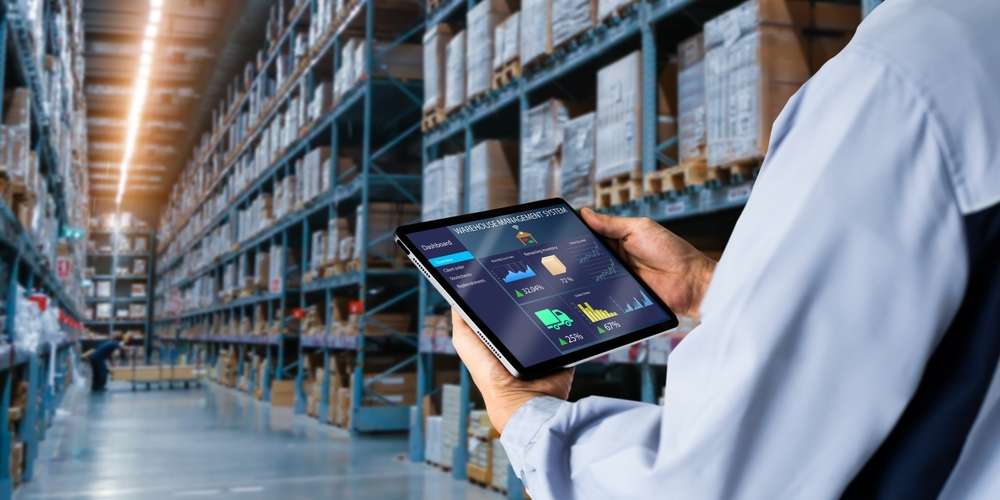2025 Warehouse Operations Roles in Singapore’s Logistics Sector
Positions involve supporting warehouse operations in Singapore in 2025, including inventory handling, order preparation, and coordination with logistics teams. Activities may cover storage management, goods movement, and maintaining operational efficiency.

How might technology reshape warehouse operations?
The integration of advanced technologies is likely to significantly impact warehouse operations in Singapore by 2025. Automation and robotics could become more prevalent, with autonomous mobile robots (AMRs) potentially assisting in inventory management and order fulfillment. Warehouse management systems (WMS) may become increasingly sophisticated, leveraging artificial intelligence to optimize storage and retrieval processes.
Warehouse companies in Singapore might invest in Internet of Things (IoT) devices to enhance real-time tracking and monitoring of goods. This could lead to more efficient inventory control and improved supply chain visibility. As these technologies evolve, warehouse staff may need to develop new skills to work alongside automated systems effectively.
What role might sustainability play in future warehouse design?
Sustainability is becoming increasingly important in the logistics industry globally, and Singapore is no exception. By 2025, we may see a greater emphasis on eco-friendly warehouse designs and operations. This could include the implementation of energy-efficient lighting systems, solar panels, and improved insulation to reduce energy consumption.
Logistics and distribution companies in Singapore might also focus on reducing waste through improved packaging practices and recycling programs. The adoption of electric forklifts and other green vehicles for internal warehouse operations could become more common. These sustainability initiatives may reshape warehouse roles, potentially creating new positions focused on environmental compliance and green logistics management.
How could data analytics transform warehouse efficiency?
Data analytics is likely to play a crucial role in enhancing warehouse efficiency by 2025. Advanced analytics tools could help logistics companies in Singapore optimize their warehouse layouts, predict demand patterns, and streamline inventory management. This may lead to more data-driven decision-making processes in warehouse operations.
The use of predictive analytics could enable proactive maintenance of warehouse equipment, reducing downtime and improving overall operational efficiency. As data becomes increasingly important, we might see a growing demand for professionals with skills in data analysis and interpretation within the warehouse sector.
What innovations might emerge in warehouse storage solutions?
Warehouse storage solutions in Singapore are likely to become more innovative and space-efficient by 2025. Given Singapore’s limited land resources, vertical storage systems and high-density storage solutions may become more prevalent. Automated storage and retrieval systems (AS/RS) could be increasingly adopted to maximize space utilization and improve order fulfillment speed.
We might also see the development of modular and flexible storage solutions that can be easily reconfigured to accommodate changing inventory needs. These advancements in storage technology could potentially create new roles focused on optimizing warehouse space and managing complex storage systems.
How might customer expectations influence warehouse operations?
Evolving customer expectations, particularly in e-commerce, are likely to impact warehouse operations significantly. By 2025, same-day or even same-hour deliveries might become more common, requiring warehouses to adopt faster and more efficient order processing systems.
This could lead to the implementation of advanced picking technologies, such as pick-to-light systems or voice-directed picking, to improve accuracy and speed. The demand for personalized packaging and value-added services might also increase, potentially creating new roles in customization and quality control within warehouse operations.
What skills might be valuable for warehouse professionals in 2025?
As warehouse operations evolve, the skills required for professionals in this field are likely to change. By 2025, we might see an increased demand for the following skills:
-
Technology proficiency: Familiarity with warehouse management systems, robotics, and IoT devices
-
Data analysis: Ability to interpret and act on data insights
-
Problem-solving: Skills to optimize processes and address complex logistical challenges
-
Adaptability: Flexibility to work with new technologies and changing operational models
-
Sustainability knowledge: Understanding of eco-friendly practices in logistics
-
Customer service: Enhanced focus on meeting evolving customer expectations
While these skills may become increasingly valuable, it’s important to note that specific job requirements can vary significantly between companies and may change over time.
In conclusion, the warehouse operations landscape in Singapore’s logistics sector is poised for significant transformation by 2025. While we cannot predict exact job openings or roles, understanding these potential trends can help professionals and companies prepare for the future of the industry. As technology continues to advance and customer expectations evolve, adaptability and continuous learning will be key for those working in or considering a career in warehouse operations.




